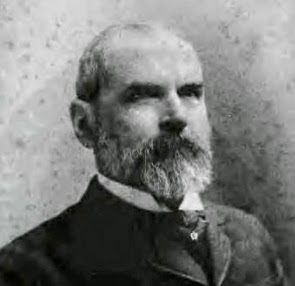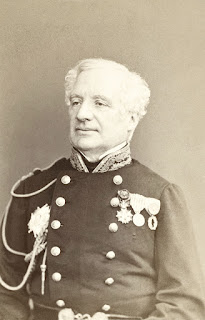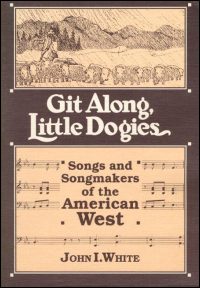In this interview, we meet a husband and wife team, and new Western Fictioneer members, who use the pen name Nik James. It is interesting to hear both their voices in the answers. I hope you enjoy their answers as much as I did.
1. When did you realize you wanted to be a writer?
We’ve always been writers and readers. Nikoo used to write stories for her grade school friends. After high school, being very good at math and science, she went to engineering school. After all, that was where the jobs were. She tucked away her love of writing (in a safe spot) to pursue her immediate responsibilities. As a result, writing took a back seat to paying a mortgage and raising a family. She never lost her love of storytelling, though.
 |
| From the Nik James Amazon author page photo of the authors |
Jim wrote ‘007’ skits for the kids in the neighborhood and poetry for himself. He later became an English major and at least tried to stay in touch with his desire to write. In fact, after finishing college he wrote a screenplay that almost sold to Robert Redford’s production company. But real life again interfered with dreams as he pursued a career in a submarine shipyard before going back to school and getting his Ph.D.
2. Did you chose the genre you write in or did it choose you?We’ve written in a variety of genres (under a variety of pen names), and we have definitely chosen them…from medieval Scottish historicals to contemporary thrillers to Westerns.
Twenty-five years ago, we began writing what Malcolm Gladwell refers to as ‘Northerns’—stories in which the fictional setting and story have a functioning system of justice in place. These were our early British-set historical novels. From there, we created a dozen ‘Easterns’—stories in which the system in place is corrupted by the ‘bad apple’ on the inside. These were the Jan Coffey contemporary thrillers. Continuing our literary journey, we traveled into the world of ‘Southerns’—stories in which the system itself is corrupt. This sojourn included our more recent historicals—violent, political, and also British-set.
Now, we’ve followed our trail into the fictional world of ‘Westerns’, where there is no viable system of justice in place, no law and order…except that which the strong, independent hero can impose. It is a world where Caleb Marlowe, the protagonist of this new series, lives by a personal code that pits him against the ruthless greed and murderous ambition of landowners and railroad barons, as well as the powerful natural forces of the American frontier. We’re drawn to the chaos in which men and women must carve out a place for themselves. We feel quite at home in this literary frontier.
3. What was the nudge that gave you faith that you could and wanted to be published?
After our younger son successfully came through heart surgery as an infant, we found ourselves reassessing our lives and our goals. We wanted careers that gave us more flexible hours to be with our family. That’s when we decided to try writing a short story together. That story, a prizewinner in a national writing contest, was the first step. The next step, naturally, was a full-length historical novel.
4. Do your life experiences influence or hinder your writing?
They definitely influence our writing. I (Nikoo) am an immigrant. The comfortable bubble of the life I grew up in was pierced when I left my country and came here as an eighteen-year-old. The bridge behind me collapsed. And straight ahead, there was a frontier with many challenges that I had to face.
Aside from coming from a strong tradition of storytelling, I spent years working in cutting-edge areas of technology and business, and those experiences brought me a wealth of knowledge and discipline. As a woman in a predominantly male field, I crossed paths with some unforgettable characters…and character is really at the heart of our writing. Jim has worked in so many places, from submarine shipyards to Rodeo Drive clubs to academia. So he too has met a few characters along the way, and his love of research in historical periods has often influenced our choices of time periods and the situations in which we place our characters.
 |
| Amazon |
5. Where did you get the idea for your latest release and tell a bit about the story?
We’ve always been drawn to the lone, reluctant hero, and the myth of the American West is built on that ideal. Our protagonist, Caleb Marlowe, embodies the spirit of the men and women forging a new life for themselves in the frontier. We think readers will find our Nik James novels have the historical feel of Lonesome Dove, the high-powered action of John Wick, and the heightened social awareness of 2021.
High Country Justice, the first book in the series, introduces Caleb Marlowe—mysterious, guarded, unpredictable, and famous for a lightning-quick draw and nerves of steel. He wants to leave his past behind, but the past has a way of dogging a man.
When Doc—Caleb’s only friend in town—goes missing, his daughter comes seeking his help. Newly arrived from back East, she hotly condemns the bloody frontier justice of the rifle and the six-gun. But this is the high country, and justice is fierce.
To free his friend from the murderous road agents, Marlowe will have to track them through wild, uncharted mountain territory, battling wild animals and bushwhackers. And when the daughter is captured by the ruthless gun hawks, Marlowe will have to take them down one-by-one, until no outlaw remains standing.
6. Are you a plotter or a pantser?
We’re plotters, but that’s pretty essential in a team effort. And we have written everything collaboratively since the day we started our first novel. But we never let our planned plot get in the way of a good story. The key is to clearly communicate possible changes with each other.
 |
| Amazon |
7. Is there a writing routine you follow or do you write when the Muse strikes?
We’ve never been ‘Muse’ types. We write almost every day. When we’re not at the keyboard, we’re walking and talking about stories and craft and publishing. Nikoo is always up around five a.m., reading and planning the day’s writing and working on staying on top of the business. Jim is up around six, and we’re both at the computer between 8-9. We write until noonish, when we have our dinner, and then go back to writing until about 4 when our dog tells us he’s ready to eat and go for a walk. If we’re up against a deadline, we’re back at the keyboard until we drop.
8. If you had a choice, which is your favorite to write, short stories, novellas, or full-length novels?
Definitely full-length novels.
9. Do you ‘interview’ your characters before or at any time while telling their story and what do you do if they don’t cooperate with your story idea?
We’ve used the ‘interview’ technique in the past and still do it occasionally. But because we are a collaborative team, we continually talk and talk and talk about who our characters are, what they aspire to do, how their fears and flaws affect their actions, and what they’re feeling. We get to know them pretty well that way.
We are firm believers that the characters MUST drive the stories. As we said, we are plotters, but the integrity of a character’s composition must take precedence over our consideration of plot. We’ve all read books in which an author forces the protagonist to do something that is out of character for him or her, simply to keep a plot on track. We’ll never do that because it frustrates the reader’s belief in the reality of that character…and the story. If a character doesn’t cooperate, then he or she is right, and we roll with it.
10. Is there a process where you find your next story or does the idea just hit you?
Story ideas can come from anywhere: the news, history, television, our reading, talking to friends, dreams, etc. Once we have the glimmer of an idea, we walk and talk and walk and talk and walk and talk. And then walk some more. Nikoo needs to move to think creatively. For the past twenty-five years, we’ve chosen our residences based on the proximity of a walking trail or a park.
11. Is there anything else you feel people would like to know or would be surprised to learn about you?
Two things. First, our fiction has a strange tendency of being prophetic. That has happened a number of times. One of our YA novels for Harper Collins (Jan Coffey’s Tropical Kiss) was set in Aruba and featured an American student who was abducted at one point in the novel. Just weeks after Tropical Kiss was published, an American girl named Natalie Holloway went missing. Our story turns out happier. The premise of our novel Five in a Row became the topic of a New York Times article “Can a Virus Hitch a Ride on your Car?”. The journalist even used experts we talked to in researching the novel. In our story, a cyber-terrorist is taking control of people’s cars. Now, we’re not saying Elon Musk is that guy, but those Tesla vehicles ARE self-driving.
Second, because Jim was an academic and Nikoo an engineer, people might have a preconceived notion about their personalities. So it might surprise them that Jim is ‘type-A’ when it comes to his attitude toward life. Everything he touches has to be sorted by size and type and color and texture and whatever. His desk, the garage, his clothes, the dishes, the dog’s toys, they’re all neatly organized and categorized. The bookcases would be alphabetically arranged if it wasn’t for someone else’s meddling. Even the dishwasher can only be loaded by him. Nikoo is far more relaxed, saving her energy for more important things, like writing.
13. What are your favorite areas of research and why they are important to you?
Both of us love politics, and we’re fascinated with history. It’s important to understand the social currents of progress. We believe that human nature doesn’t change, and “Those who cannot remember the past are condemned to repeat it.”
14. When do you start to ‘market’ your new release?
The main channel of marketing for us is our newsletter. Some of the subscribers have been with us for over two decades. The newsletter is year-round, and we try to reach out to subscribers at least once a month. The marketing of the individual book starts at least six months ahead of release.
15. What advice would you give to those who dream of writing, or what advice would you give your younger self?
To those who ‘dream’ of writing, there’s that old 60s song about, “Wishing and hoping and thinking and praying, planning and dreaming…That won’t get you into his heart.” Our advice would be to start writing and keep writing. We all learn and relearn every time we sit at the computer and connect with our characters and the quests and conflicts and obstacles we throw at them.
To our younger self, the advice would be “Brand yourself.” We’ve made the mistake of following our hearts and telling many different types of stories. The journey has been fun but the marketing a nightmare.
16. Are there authors you grew up with or inspired you to take pen to paper?
Nikoo remembers skipping classes in middle school and hiding behind the shelves in the library to reread Victor Hugo’s Les Misérables, Hemingway’s For Whom the Bell Tolls, Tolstoy’s War and Peace, and many others. She was and is a reader. Those authors and many others inspired her.
As a child, Jim read every historical biography he could find. As he reached high school and college, he was captivated by Fitzgerald and Hemingway, Arthur Conan Doyle and Charles Dickens, and Willa Cather.
17. If it were possible would you choose to go forward in time or back?
We’d both definitely choose to go back in time, but who would want to go back prior to modern dentistry?
Thank you both. This was fun and informative. For more about the authors and their works visit the following:





















